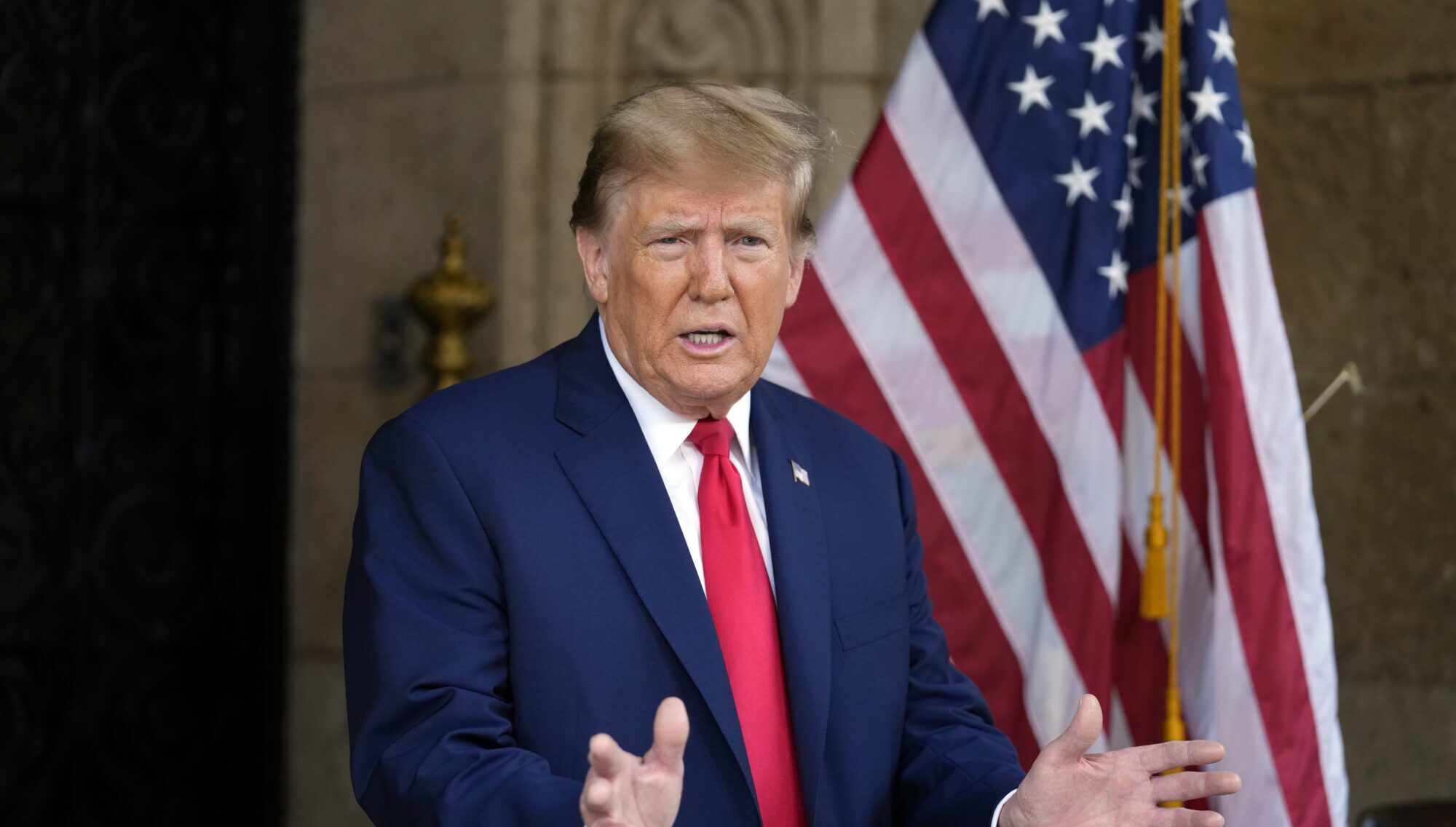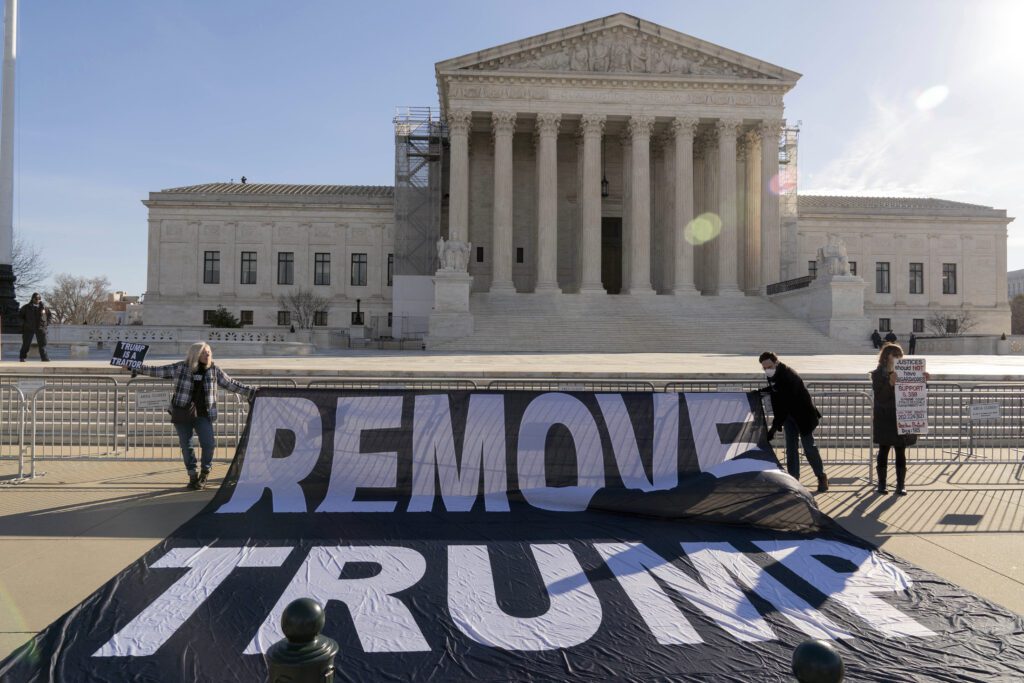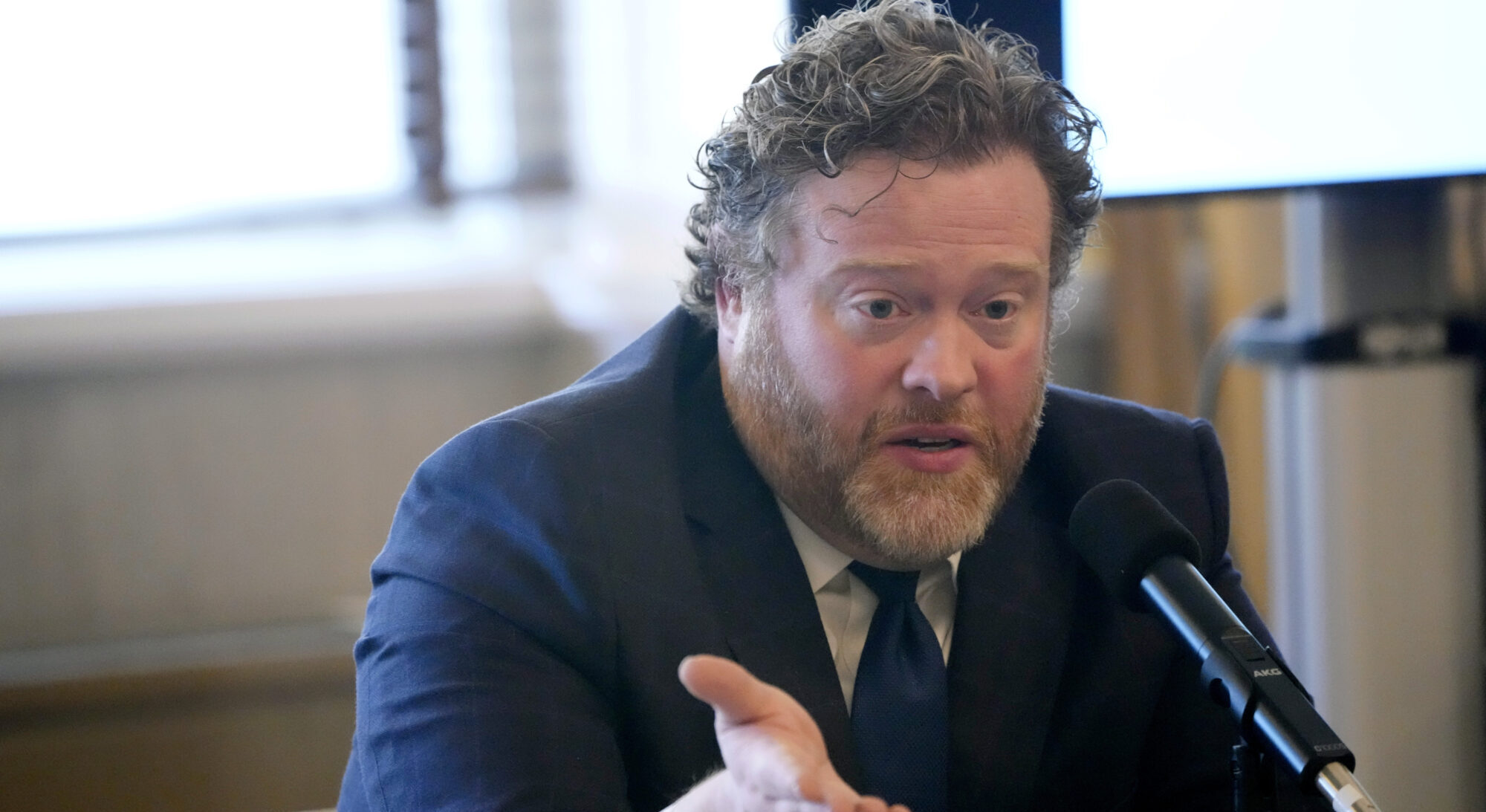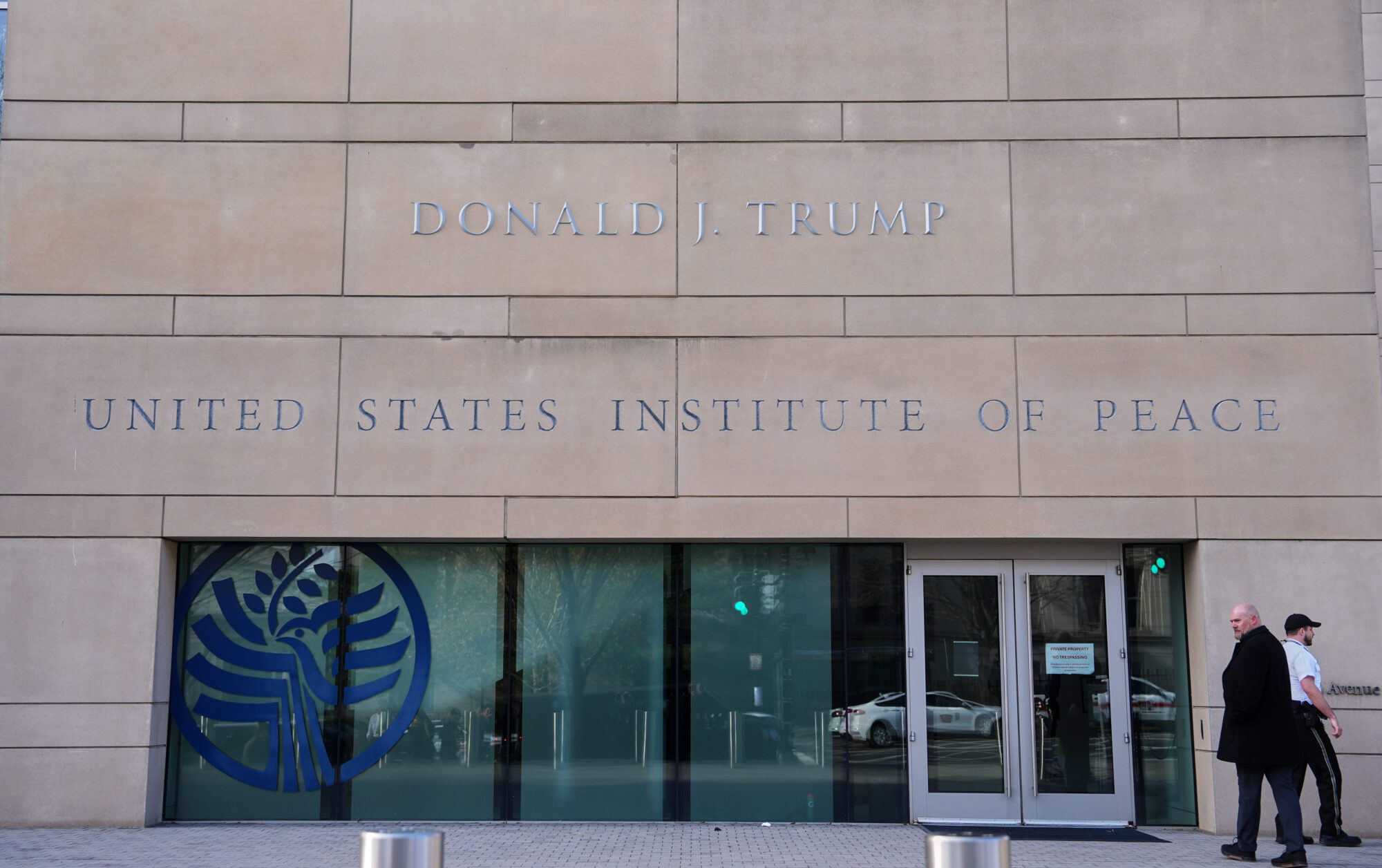
President Donald Trump, Feb. 8, 2024. (AP Photo/Rebecca Blackwelli)
- The U.S. Supreme Court heard arguments on Thursday on whether the former President should be barred from the ballot by a state over the “insurrection clause” in the 14th Amendment.
Former President Donald Trump seemed pleased with the oral arguments before the U.S. Supreme Court on Thursday regarding his appeal of a 4-3 Colorado Supreme Court ruling that barred him from appearing on the state’s ballot in the 2024 presidential election cycle.
“I thought the presentation today was a very good one,” Trump said, speaking from his Mar-a-Lago home in Florida. “I think it was well received, I hope it was well-received.”
The case against the former President and current Republican frontrunner in Trump v. Anderson was brought by six Colorado voters being represented by Citizens for Responsibility and Ethics in Washington. It centers on his alleged role in an “insurrection” related to the riot at the U.S. Capitol on January 6, 2021. However, Trump has yet to be tried and convicted of such claims in any court in the nation.
Thursday’s proceeding was the first time in U.S. history that the nation’s highest court heard arguments on disqualifying a presidential candidate using Section 3 of the 14th Amendment in the U.S. Constitution.
Justices across ideological lines on the court seemed skeptical of the Colorado group’s position.
Two of the three liberal justices – Elena Kagan and Kentanji Brown Jackson – questioned letting states make such a ruling that could impact the result of a federal election.
“I think the question that you have to confront is why a single state should decide who gets to be president of the United States,” Justice Kagan said, adding that the disqualification question “sounds awfully national to me.”
Justice Jackson said Section 3 was a way to stop the “South from rising again,” essentially barring secessionists from leveraging local popularity to enter Congress. She noted the ambiguity of the term “officer” of the United States used in Section rather than specifically mentioning the President of the United States.
“My question is why the framers would have designed a system that would — could — result in interim disuniformity in this way,” Jackson asked.
Jackson was appointed by current President Joe Biden, the Democratic nominee again in 2024. Biden and Trump appear on a collision course for a rematch four years in the making.
The five conservative justices also seemed unswayed by the Colorado voters’ arguments. Justices Clarence Thomas, Samuel Alito, Neil Gorsuch, Brett Kavanaugh and Amy Coney Barrett, as did Chief Justice John Roberts, often seen as more moderate on the court. Trump appointed Gorsuch, Kavanaugh and Barrett.
Chief Justice Roberts pushed back on the attorney for the Colorado voters, Jason Murray, asking, “The whole point of the 14th Amendment was to restrict state power, right?”
Roberts went on to say that the 14th Amendment augmented federal power under Section 5 and Congress had the power to enforce the provisions therein. He said the amendment was “the last place that you’d look for authorization for the states… to enforce the presidential election process.”
“That seems to be a position that is at war with the whole thrust of the 14th Amendment and very ahistorical,” Roberts said of the use of the constitutional amendment by a state to make such an action as Colorado has done.
Roberts also raised the notion that if the nation’s Supreme Court upheld the Colorado decision that it could result in other states attempting to do so, depending on their party or candidate of choice, including states that could seek to block Democratic presidential candidates from their state ballots over “insurrection,” which justices also seemed to question the definition of and whether they would also then be asked to define in future filings before the court.
“I would expect that a goodly number of states will say: ‘Whoever the Democratic candidate is, you’re off the ballot. That’s a pretty daunting consequence,” the Chief Justice said.
Justice Alito agreed, saying “other states are going to retaliate,” to which the Colorado Solicitor General Shannon Stevenson, also arguing on behalf of the state, told the justice, “I think we need to have faith in our system.”
Trump’s attorney, Jonathan Mitchell, said Congress should define the way in which to handle ensuring those convicted of insurrection. He argued that it is up to Congress, not the states, to determine the process and definitions on barring candidates from federal public office, not individual states.
As for the effects of Trump being barred from the ballot, Justice Kavanuagh asked, “What about the idea that we should think about democracy, think about the right of the people to elect candidates of their choice, of letting the people decide?”
The Colorado attorneys contend that the state should be allowed to determine who is on its ballot.
Trump was also barred from the ballot in Maine in a decision that came by way of Secretary of State Shenna Bellows, a Democrat. Trump has appealed that decision as well in the state and the case is on hold until the U.S. Supreme Court rules in the Colorado appeal.

On whether the January 6th Capitol riot was an “insurrection” and if Trump instigated it, his attorney said it did not meet the definition.
“This was a riot. It was not an insurrection,” Mitchell said. “The events were shameful, criminal, violent – all of those things, but it did not qualify as insurrection as that term is used in Section 3.”
Ultimately, the tenor of the proceedings and the line of questioning by the justices have pundits and legal analysts opining that the majority of the court, perhaps nearly all of the justices, could be leaning against the Colorado voters’ position and toward allowing Trump to remain on the state’s ballot.
Overturning the Colorado Supreme Court ruling would, in turn, likely end other such ballot challenges, namely in Maine. It would not, however, end the question of whether Trump instigated, encouraged and/or participated in an “insurrection” and whether the former President sought to overturn the 2020 election. Those cases are currently pending in D.C. federal court and in Georgia, respectively.











